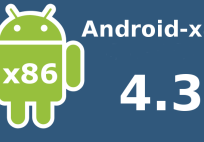If you follow Android News then you no doubt have seen or heard about the barrage of law suits that Apple have filed against the Android brand itself (Google) and the manufacturers of devices that use its open source software.
I have tried to keep completely clear of posting anything on the site about this as I fear they file a lawsuit against our site for posting text which they have clearly copyrighted somewhere right?
Anyway, todays news aint exactly new and whilst its kind of been doing the rounds for some weeks it seems to have come to a head today.
The US International Trade Commission has found Android lover HTC guilty of infringing Apple’s patents and in turn banned the import and sales of the companies handsets in the US.
The patents that have been granted as being an infringement relate to sms messages that contain url’s, phone numbers and map locations then turn them into clickable links for users to make life a little easier on them.
HTC have confirmed that they will remove said infringements from their all of their devices however this will require the handsets to have a software update (yes that means every device from Android 1.5 onwards) and this will be a huge task to undertake before April 19th 2012 when the ban commences.
We are gratified that the Commission affirmed the judge’s initial determination on the ‘721 and ‘983 patents, and reversed its decision on the ‘263 patent and partially on the ‘647 patent. We are very pleased with the determination and we respect it. However, the ‘647 patent is a small UI experience and HTC will completely remove it from all of our phones soon.
We should point out that the infringements are actually a part of Android and well since Android aint for sale they cant file a law suit against Google directly so instead go after the manufacturers of Android devices.
Not much gets my back up but c’mon Apple you are simply ruining all that is great in this world, raising lawsuits against anyone that shows as being a possible competitor to you is simply counter productive and will stifle the sales of and the future of the mobile market.
Via: The Verge








![[App] Lollipop Land; 5.0 easter egg released to play store as game](../../landofdroid.com/wp-content/uploads/2014/11/wpid-wp-1415372216626-resize-204-142.png)















